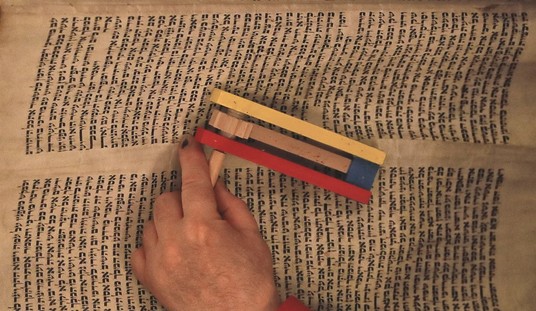Alan Dershowitz can be a frustrating man, but when he is good, he is very, very good.
I witnessed his courage personally a few years back when I was part of delegation with him at the Durban II Conference in Geneva. Dershowitz was a one-man resistance band then, protesting the speech of Mahmoud Ahmadinejad at that UN-sponsored festival of anti-Semitism. (Well, he did have a few of us in support, but Dersh definitely led the way.)
I will skip past some of his iffier moments of Obama-induced backsliding to the present day when the Harvard professor has again stepped forward, this time to protest the decision of Yeshiva University’s Cardozo School of Law to give its annual “International Advocate for Peace” award to U.S. President Jimmy Carter.
Dershowitz told The Algemeiner in an interview: “I can’t imagine a worse person to honor for conflict resolution. Here’s a man who has engendered conflict wherever he goes. He has encouraged terrorism by Hamas and Hezbollah. He was partly responsible for Yasser Arafat turning down the Clinton-Barak peace offer.”
“He is significantly responsible for the second Intifada,” Dershowitz went on. “If he had told Yasser Arafat to accept that deal we might be celebrating Palestinian statehood today. He just prefers terrorists to Israelis.”
Okay, Dersh, how do you really feel?
Of course, I agree with him in this instance. Jimmuh, quite frankly, gives me the creeps — and not just because he didn’t have a clue how to handle the economy and botched the Iranian hostage crisis (sorry, Ben Affleck), but because of something deeper and more repellent. Carter, since leaving office, has behaved like a self-satisfied and self-regarding racist prig.
A dispute and a certain amount of backpedaling is going on regarding who is responsible for his award from a Jewish university. I don’t know much of the ins and outs of this, but Lori Lowenthal Marcus at The Jewish Press has some fascinating details.
I am less interested in whom to blame than I am in the larger issue — that a major Jewish university could actually honor a man who calls Israel an “apartheid state,” indeed may have done more than anyone to mainstream that concept through the title of his book Palestine: Peace Not Apartheid.
We are only a couple of days past Holocaust Remembrance Day so you will excuse me if this controversy throws me back to my childhood when I first became aware of that horrifying event. That awareness came via the Auschwitz numbers tattooed on the arms of the nurses in my father’s medical office, something very hard for a seven-year old New York boy to wrap his mind around.
I wondered then and still do how anyone could have allowed this to happen. In another part of his interview, Dershowitz pointed out that “Carter during his presidency sat idly by while 2 million Cambodians were killed by Pol Pot.” But that, reprehensible as it was, is not what interests me here. What interests me is how Jews could give an award to such a person. What strange delirium compels it?
And that throws me back not to my own childhood (the 1950s) but to the 1930s when, as we all know, many of the seeds of the Holocaust were being planted (those seeds that had not been planted centuries before that). It strikes me that some German Jewish intellectuals of that time might well have sought to honor the equivalent of Jimmy Carter.
Purely accidentally I am in the midst of reading a book about that era — A Terrible Splendor — that narrates the famous 1937 Davis Cup match between the German Gottfried von Cramm and Don Budge. Von Cramm, evidently quite a handsome and charming man, was also a homosexual, a group, as readers no doubt know, not loved by Hitler who sent them to the camps with the Jews, gypsies, and, later, the Catholics. The German tennis star’s sexual proclivities were apparently well known to the Gestapo and he was quite literally playing for his life as he battled the American at Wimbledon.
The book’s author — Marshall Jon Fisher — does an excellent job of drawing portraits of the people confronting those incredibly difficult times. Some kept their moral compass. Others didn’t. Just like ours.
I think we can say that Alan Dershowitz has largely kept his moral compass. Jimmy Carter is another matter. The folks at Yeshiva University — students, faculty, and administration — would be well advised to search inside themselves for where they stand. And why.









Join the conversation as a VIP Member